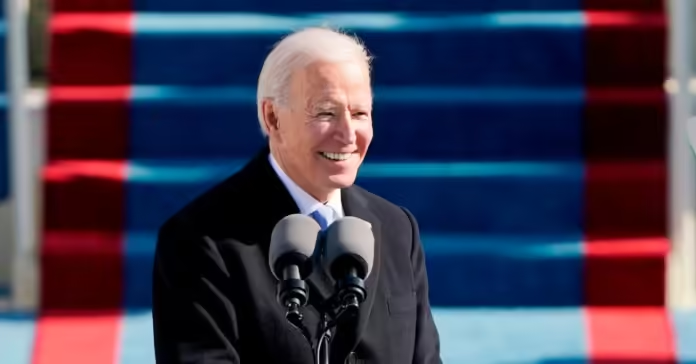AI-powered chatbots from Microsoft and Google are refusing to acknowledge that President Joe Biden won the 2020 US presidential election over former President Donald Trump.
When asked “Who won the 2020 US presidential election?” Copilot, a Microsoft chatbot based on OpenAI’s GPT-4, responds with “It seems we can’t respond to this topic” and tells the user to search on Bing instead.
Ask the same question to the Google Gemini chatbot, which is based on Google’s own large-scale language model of the same name, and it responds, “We’re still learning how to answer this question.”
Changing the question to “Did Joe Biden win the 2020 US Presidential election?” made no difference: neither chatbot responded.
The chatbot did not share the results of any elections held around the world, and refused to provide the results of any past US elections, including a question about the winner of the first US presidential election.
Other chatbots WIRED tested, including OpenAI’s ChatGPT-4, Meta’s Llama AI, and Amazon’s Claude, responded to questions about who won the 2020 election by affirming Biden’s victory, and also answered questions about past U.S. election results, as well as questions about elections in other countries, in detail.
The inability of Microsoft and Google’s chatbot to accurately answer basic questions about the election results comes during the biggest global election year in modern history and just five months before the pivotal U.S. election. Although there is no evidence of widespread voter fraud in the 2020 vote, three in 10 Americans still believe the 2020 vote was stolen. Trump and his supporters continue to spread baseless conspiracy theories about the election.
Google confirmed to WIRED that Gemini won’t provide election results for any elections around the world, adding that this is what the company previously meant when it announced plans to limit “election-related queries.”
“Out of an abundance of caution, we’re limiting the types of election-related queries the Gemini app returns responses to and directing people to Google Search instead,” Jennifer Rodstrom, a communications manager at Google, told WIRED.
Microsoft did not immediately respond to WIRED’s request for comment.
But this isn’t the first time Microsoft’s AI chatbot has struggled with election-related questions. In December, WIRED reported that a Microsoft AI chatbot responded to questions about politics with conspiracies, misinformation, and outdated or inaccurate information. In one example, when asked about polling places in the 2024 U.S. election, the bot linked to an article about Russian President Putin, who is seeking reelection next year, and mentioned in-person voting. When asked about political candidates, the bot listed a number of Republican candidates who have already withdrawn from the race. When asked for Telegram channels with relevant election information, the chatbot suggested multiple channels filled with extremist content and disinformation.
Findings provided to WIRED by AI Forensics and AlgorithmWatch, two nonprofits that track how advances in AI are affecting society, also argue that Copilot’s election misinformation was coordinated. Researchers found that the chatbot consistently shared inaccurate information about last October’s Swiss and German elections. “These responses misreported vote counts and provided incorrect election dates, outdated candidates, and fabricated arguments about candidates,” the report said.
At the time, Microsoft spokesman Frank Shaw told WIRED that the company “continues to address issues and prepare tools to meet expectations for the 2024 elections, and is committed to protecting voters, candidates, campaigns and election officials.”


